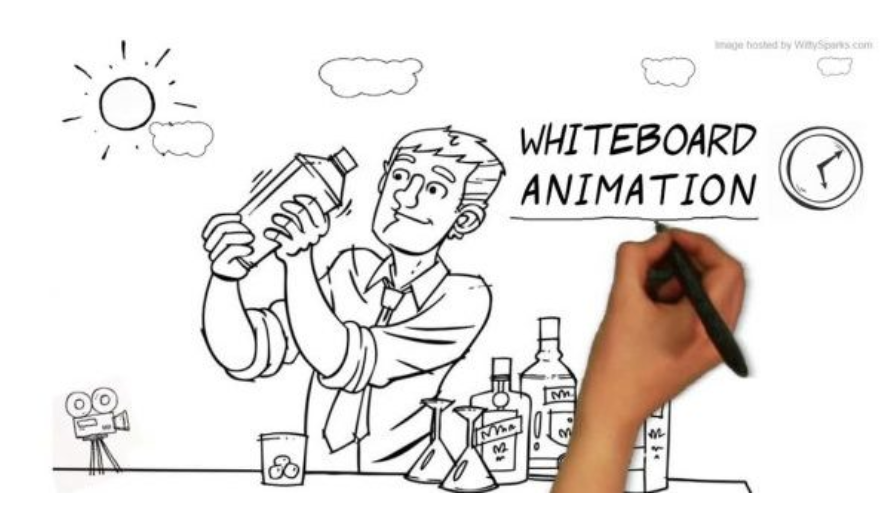Revolutionizing Plastics: How Advanced Recycling Technologies Are Changing the Game
Advanced recycling technologies are revolutionizing the plastics industry by transforming waste plastics into high-quality raw materials. You're seeing innovations like pyrolysis, which breaks down plastics at a molecular level to produce oils and fuels, and gasification, which converts plastics into syngas for sustainable manufacturing. Depolymerization, enzymolysis, and solvolysis also play key roles in breaking down plastics into their original monomers, enabling the creation of virgin-quality materials. These technologies overcome traditional recycling limitations, reduce fossil energy reliance, and cut CO2 emissions, paving the way for a closed-loop system. As you explore further, you'll discover how these technologies are reshaping the future of plastics.
Revolutionizing Plastics: How Advanced Recycling Technologies Are Changing the Game
Advanced plastics recycling technologies are transforming the plastics industry in profound ways, revolutionizing how we recover and reuse plastic materials. You're now at the forefront of a considerable shift, where traditional limitations are being overcome by innovative methods. Key chemical processes like pyrolysis, gasification, and depolymerization are enabling the recycling of previously hard-to-recycle plastics. These advanced recycling technologies break down plastics into their raw materials, allowing for the creation of new, high-quality products. This not only reduces our reliance on virgin fossil resources but also helps close the loop in the plastics value chain, contributing significantly to sustainability goals. As you embrace these technologies, you're part of a movement that's making plastic recycling more efficient, widespread, and environmentally friendly.
Introduction
As you explore the world of plastic recycling, you're about to discover a revolution that's transforming the way we manage plastic waste. Advanced recycling technologies are at the forefront of this change, offering innovative solutions to recycle plastics that were previously deemed non-recyclable. These technologies involve highly engineered processes that convert used solid plastic into its raw material forms, such as gases or liquids, which can then be remade into new plastic products.
What Is Advanced Recycling?
Advanced recycling is a game-changer in the plastics industry, enabling the transformation of used plastics into top-quality products that were previously hard to recycle. This process harnesses the power of science to convert post-use plastics back into their original building blocks, such as specialty polymers and feedstocks for new plastics and chemical products. Unlike mechanical recycling, which retains the plastic's original molecular structure, advanced recycling alters the chemical makeup of the plastics, often through methods like pyrolysis, depolymerization, or the use of solvents.
This technology can recycle hard-to-process materials like films, layered packaging, and mixed plastics, helping to shift plastic manufacturing from a linear to a circular model. By doing so, advanced recycling reduces the need for natural resources, lowers greenhouse gas emissions, and creates virgin-quality plastics suitable for food, medical, and pharmaceutical packaging[2][3][4].
Core Technologies in Advanced Recycling
In the domain of advanced recycling, several core technologies are repeatedly being leveraged to transform used plastics into valuable raw materials. One of the most promising methods is pyrolysis, a process that uses high temperatures in an oxygen-free environment to break down plastics into their molecular building blocks. This technique is particularly effective for plastics that are difficult or impossible to recycle through traditional methods. Through pyrolysis, plastic waste is converted into fuels, chemicals, and high-quality raw materials suitable for manufacturing new plastics. This closed-loop system helps reduce plastic waste, aligning with sustainability goals and offering a profitable solution for businesses. By refining pyrolysis, researchers are enhancing its efficiency and output quality, making it a cornerstone in advanced plastic recycling.
Pyrolysis
Pyrolysis stands at the forefront of innovative plastic recycling methods, offering a groundbreaking solution for transforming hard-to-recycle plastics into valuable resources. This process involves decomposing plastic waste through high temperatures, typically around 500°C, in the absence of oxygen. As you explore pyrolysis, you'll find it breaks down complex polymers into their original building blocks, producing pyrolysis oil, fuel gas, and char.
Gasification
Gasification, another innovative method in the arsenal of plastic recycling technologies, involves the thermal decomposition of plastic waste in a controlled environment with a limited amount of oxygen. This process converts plastic into syngas, a mixture of carbon monoxide (CO) and hydrogen (H2), through several critical phases: drying, pyrolysis, combustion, and reduction. You start by drying the plastic to eliminate moisture, then decompose it in a low-oxygen environment during pyrolysis, generating volatile compounds and a residual char. The volatiles are partially oxidized, producing heat and converting the material into CO2 and ash, while the char is reduced to form syngas. This syngas can be processed into monomers, serving as feedstocks for producing new plastics, thereby supporting a circular economy in plastic manufacturing[2][4][5].
Depolymerization
Building on the advancements in gasification, depolymerization offers another powerful tool in the quest to revolutionize plastic recycling. This process involves breaking down plastics into their original monomers, which can then be repolymerized into virgin-quality materials. When it comes to PET (polyethylene terephthalate), depolymerization is particularly effective. Through a process called methanolysis, PET waste is heated in methanol with a catalyst to produce dimethyl terephthalate (DMT) and ethylene glycol. These monomers are then purified and repolymerized into new PET, identical in quality to virgin PET. This method guarantees that even complex waste streams, such as colored PET bottles and polyester fabrics, can be recycled efficiently, contributing considerably to closed-loop systems and high-quality material recovery[2][3][4].
Solvolysis
As you explore the domain of advanced plastic recycling, another essential method emerges: solvolysis. This solvent-based process is pivotal in breaking down polymers into their monomers, which can then be repolymerized into high-quality plastics. Solvolysis is particularly focused on recycling PET, commonly found in water and soda bottles, as well as clear plastic packaging. The process involves selecting a suitable solvent to react with the polymer, optimizing conditions like temperature and pressure, and often using catalysts to enhance efficiency. After depolymerization, the monomers are separated, purified, and then repolymerized into virgin or near-virgin quality materials. This solvolysis recycling method guarantees the end products meet stringent quality standards, making it a critical component in achieving closed-loop systems and sustainability goals in the plastics industry[1][2][3].
Enzymolysis
In enzymolysis, these enzymes break down PET into its constituent monomers, terephthalic acid and ethylene glycol, which can then be repolymerized into high-quality plastics without loss of quality. This approach eliminates the need for intensive sorting and can be coupled directly with existing PET production plants, making it a highly efficient and sustainable solution for plastics recycling[5]. By leveraging enzymolysis, you can contribute to a circular economy by converting waste into valuable raw materials, enhancing sustainability and reducing environmental impact.
Dissolution
When it comes to advanced recycling technologies, dissolution stands out as a method that simplifies the process of breaking down plastics. This technique involves mixing plastic waste with a solvent that targets a specific polymer, allowing it to dissolve while leaving contaminants like additives and fillers undissolved. The dissolved polymer is then separated through mechanical processes such as filtration or centrifugation.
In this dissolution process, the plastic polymer chains remain intact, ensuring the quality of the recycled material. Additional purification steps are applied to remove any remaining contaminants, enhancing the plastic's purity for its final application. This method is a form of physical recycling, making it efficient for recycling specific types of plastics, such as polypropylene, and contributing considerably to the goal of creating a closed-loop system for plastic waste[1][2][5].
Why Advanced Recycling Matters
Advanced recycling is a game-changer in the plastics industry, and its significance cannot be overstated. When you consider the environmental and economic benefits, it's clear why advanced recycling matters. This technology converts hard-to-recycle plastics back into their molecular building blocks, which can then be used to produce new, high-quality plastics. This process reduces the need for fossil energy resources by up to 97% compared to landfilling and cuts CO2 equivalent emissions by more than 100% compared to traditional end-of-life methods[2][5].
Conclusion
As you consider the broader impact of advanced recycling technologies, it becomes clear that these innovations are not just a step forward, but a transformative leap in the plastics industry. Advanced recycling, through methods like pyrolysis, gasification, and depolymerization, is revolutionizing how plastic waste is handled. These technologies convert used plastics into their molecular building blocks, enabling the production of new, virgin-quality plastics. This molecular recycling approach markedly broadens the types of plastics that can be recycled and reduces the reliance on fossil resources. As companies invest billions in these technologies, the potential for a closed-loop system where plastics are continuously recycled and reused becomes increasingly feasible, contributing substantially to sustainability goals and a more environmentally friendly future.






